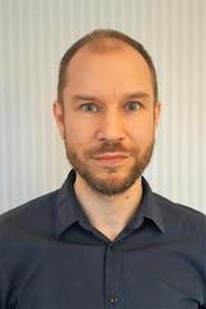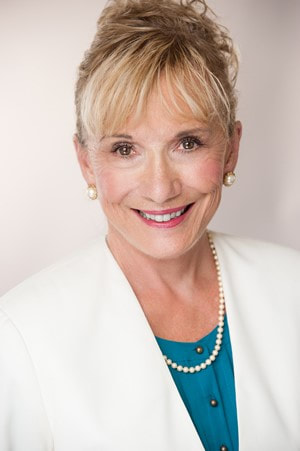Check out the conference presentations
To access this page, you need to have the password, which was sent to all registrants. If you attended the conference but do not have the password, please contact us at [email protected]
Venue
The conference was fully online and accessed via Zoom. It was officially hosted by Jönköping University, an international university in the heart of Sweden, known for student entrepreneurship, strong research and successful collaborations. Jönköping is a town situated on the shores of lake Vättern. www.jkpg.com/en/
Keynote Speakers
|
Keynote Lecture
Judith Stevens-Long: Dying: development in the final stage of life. Abstract: This presentation explores what is known about growth in the last stage of life. What are the intellectual and emotional phenomena that researchers have addressed and what have they found? Is acceptance a sign of maturity or giving up? What kind of thoughts and behaviors might be associated with "a good death," and what kind of research do we need to do? There are clearly more questions than answers about dying. This talk will challenge the traditional ideas about dying and bereavement that flowed from Elizabeth Kubler Ross' classic work and talk about how developmentalists might help create a death culture that makes provides more meaningful support as the baby boom approaches this part of the life span. Biography: Judith Stevens-Long, Ph.D., is emerita Professor of Human and Organizational Development at Fielding Graduate University where she served as the Malcolm Knowles Chair for Adult Development and Learning and is currently an adjunct. She was also a founding member of the faculty at University of Washington, Tacoma. She is the author of four editions of Adult Life: Developmental Processes. She has published numerous articles on theory in adult development, personality development in adulthood and assessment of graduate education. Her latest work is on death and dying as an opportunity for continuing development. Living Well Dying Well is available on Amazon.com and she is the creator of Dying with Wisdom, where she posts articles designed to support people facing the last stages of life and their caretakers. |
|
Keynote Lecture
Jonathan Reams: Leading our Lives by Learning from Life: Perspectives on Adult Development and Human Relations. Abstract: What does it mean to ’lead’ our lives? What is it we are learning through the dialectic between our sense of self and our experience of the world? How are our human relationships a focal point for this leading and learning? This presentation will combine personal curiosity with academic research to explore these questions. Links between learning, development and leadership have become clearer and there are many perspectives equating more and higher with better. However, there are also limits to these perspectives and evidence that how adult development is conceptualized and operationalized requires the inclusion of different aspects central to the quality of our human relations. Biography: Jonathan Reams, Ph.D., practices the cultivation of leadership through awareness based consulting, coaching and action research on leadership development program design and delivery in a variety of settings. He has a position at the Norwegian University of Science and Technology (NTNU), serves as Editor-in Chief of Integral Review, and is a co-founder of the Center for Transformative Leadership and of the European Center for Leadership Practice. He brings awareness based leadership development practices to his work, focusing on how the inner workings of human nature can develop leadership capacities for today’s complex challenges. |
Conference Schedule and Abstracts
23rd April
Download the full list of abstracts below:-
- 13.00 to 16.00 – Pre-conference workshop: Three levels of leadership culture
- 18.00 to 20.00 - Informal Gathering and Poster Session
- 09.00 to 17.00 – Conference sessions, including keynote lecture at 15.40-16.40
- 09.30 to 17.00 – Conference sessions, including keynote lecture at 13.30-14.30
Download the full list of abstracts below:-
| esrad_2021_conference_abstracts-6.pdf | |
| File Size: | 523 kb |
| File Type: | |
Pre-conference Workshop

This year’s pre-conference workshop Three Levels of Leadership Culture, was led by Kristian Stålne.
The workshop took as point of departure the three levels of leadership culture developed by Drath et al at the Center for Creative Leadership:
Dependent, Independent and Interdependent. https://www.ccl.org/articles/leading-effectively-articles/whats-your-leadership-culture/
From this we dug deeper and brought in other research perspectives from the adult development field to explore leadership culture; Cook-Greuter’s perspective taking; complex thinking according to Piaget and Basseches; and belongingness.. There were short exercises intended to prime the respective cognitive frame and mindset for each leadership culture level. We discussed theoretical questions regarding how individual capabilities and meaning making relate to that of the collective, e.g. in terms of leadership culture. Also, we addressed practical questions concerning how we, as researchers, can come together in an online conference not only as individuals representing our own work and our respective research directions but rather how we can act and advance the field as a collective.
The workshop was a work in progress along with the development of a framework for collective development denoted "Collective Developmental Archetypes" and has previously been applied to support transdisciplinary research initiatives as well as leadership development.
The workshop took as point of departure the three levels of leadership culture developed by Drath et al at the Center for Creative Leadership:
Dependent, Independent and Interdependent. https://www.ccl.org/articles/leading-effectively-articles/whats-your-leadership-culture/
From this we dug deeper and brought in other research perspectives from the adult development field to explore leadership culture; Cook-Greuter’s perspective taking; complex thinking according to Piaget and Basseches; and belongingness.. There were short exercises intended to prime the respective cognitive frame and mindset for each leadership culture level. We discussed theoretical questions regarding how individual capabilities and meaning making relate to that of the collective, e.g. in terms of leadership culture. Also, we addressed practical questions concerning how we, as researchers, can come together in an online conference not only as individuals representing our own work and our respective research directions but rather how we can act and advance the field as a collective.
The workshop was a work in progress along with the development of a framework for collective development denoted "Collective Developmental Archetypes" and has previously been applied to support transdisciplinary research initiatives as well as leadership development.
Online Conference Format
Although meeting in person is preferable for many reasons, the online format can allow for more interactive forms of presentation and discussion. Instead of following the typical conference format where the presentation takes most of the time on the expense of the follow-up questions and discussions, we invite all presenters to pre-record and upload their presentations before the conference. The conference will then give more time to the discussions and interactions among the participants.
Presentations:
Presenters are asked to deliver a short live online presentation at the conference (we expect this to be no longer than 15 mins, and preferably around 10-12 mins, allowing 10 mins for questions and answers at the end of each presentation. Conference sessions (except discussion and workshop sessions) will last for 70 mins and allow for 3 presentations with associated Q & A. Discussion and workshop sessions will also last 70 mins and vary in format according to the preference of the presenters. .
Presenters may also optionally pre-record a full version of their presentation (up to 20 minutes), to be viewed by other attendees before the conference, and which can be made available publicly on the ESRAD website on a permanent basis after the conference, should the presenter so wish.
We will offer technical support and give tips for the making of the recordings. One suggestion is to use the recording function in Zoom. The deadline for uploading is April 14th.
Presenters may also optionally pre-record a full version of their presentation (up to 20 minutes), to be viewed by other attendees before the conference, and which can be made available publicly on the ESRAD website on a permanent basis after the conference, should the presenter so wish.
We will offer technical support and give tips for the making of the recordings. One suggestion is to use the recording function in Zoom. The deadline for uploading is April 14th.
Viewing presentations before the conference
The deadline for upload allows attendees to have ten days to prepare for the conference by viewing presentations in advance. If you are a presenter, you are expected to view the other presentations in your session, and send interesting question to discuss to the session chair.
Posters: format
The deadline for upload allows attendees to have ten days to prepare for the conference by viewing presentations in advance. If you are a presenter, you are expected to view the other presentations in your session, and send interesting question to discuss to the session chair. Please create your poster in Powerpoint and record a 5-min audio within your poster. Guidance on embedding an audio file within a Powerpoint slide is provided here. Posters will be made available to view before and during the conference. During the conference, there will be an opportunity for you to read out the abstract of your poster and take questions about it.
Keynote format
The keynote lectures as well as other introductory presentations will be performed live.
Conference Fees
- Early Bird Conference Fee: €75 (No longer available)
- Full Conference Fee: €95
- Student Fee: €50 (A number of bursary places are available to students for a 100% discount on the weekend conference fee. If you would like to apply for a bursary place, please email us at [email protected] with evidence of your status as a student, university and country of residence, and a brief reason why you think you should receive one.)
- Pre-Conference Workshop Fee: €20
Participants who have already paid the full fee will be reimbursed for the difference. Authors who choose to withdraw from the conference will be fully reimbursed.
If you have any questions, please feel free to get in touch with us.
Conference Chairs
Sofia Kjellström, Jönköping University
Cecilia Bjursell, Jönköping University
Kristian Stålne, Malmö University
Cecilia Bjursell, Jönköping University
Kristian Stålne, Malmö University
Organizing Committee
Sofia Kjellström, The Jönköping Academy for Improvement of Health and Welfare, Jönköping University
Cecilia Bjursell, Jönköping University and the National centre for lifelong learning
Kristian Stålne, Malmö University
Oliver Robinson, University of Greenwich
Teresa Maria Sgaramella, University of Padova, Italy
Nick Shannon, Management Psychology Ltd.
Cecilia Bjursell, Jönköping University and the National centre for lifelong learning
Kristian Stålne, Malmö University
Oliver Robinson, University of Greenwich
Teresa Maria Sgaramella, University of Padova, Italy
Nick Shannon, Management Psychology Ltd.






